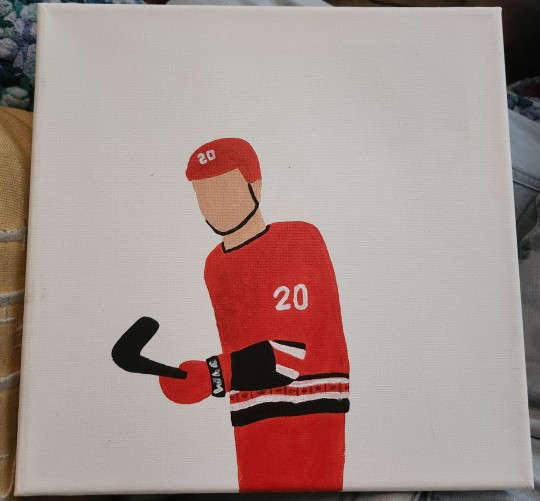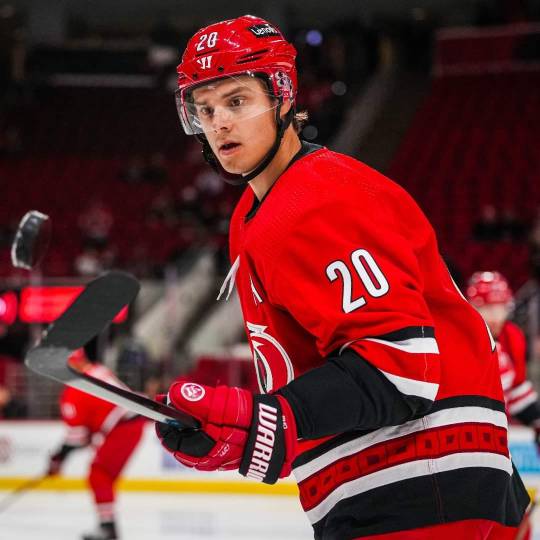#trad art is hard but abstraction is my friend
Text


look ma! no lines!
#trad art is hard but abstraction is my friend#didn't even sketch it out first ^.^#my mom is a certified Caniac™️ so my dad asked me to paint something for him to give her for Christmas#and it is going A Way#thinking about doing a Leafs piece for him since they're his other team#(rip man sorry about not winning a cup since the literal year you were born)#and tbh their whole A House Divided aesthetic that they've got going with their decor right now is really funny to me#art#my art#traditional art#lol should i have a special tag for things that aren't star wars?#hockey#carolina hurricanes
2 notes
·
View notes
Text
Bogha-frois Conversations: Will Hammond
Early this year during Glasgow’s Celtic Connections Festival I had the pleasure of joining a host of incredible LGBT+ artists for a performance and a panel around the theme of Bogha-frois: LGBT+ Voices in Folk. A brainchild of Pedro Cameron (Man of the Minch), Bogha-frois began as a workshop at the Scottish Storytelling Centre and takes its name from the Gaelic word for “rainbow.” The energy around Bogha-frois has enacted a metamorphosis - far beyond a standalone workshop, panel, or critically-acclaimed gig, Bogha-frois is a movement celebrating gender and sexual diversity within traditional and folk music, song, and dance in Scotland. Following the events in Glasgow, I wanted to continue these conversations and proposed a series of monthly blog posts. It’s hope this series will be a place for dialogue around the intersections of traditional arts, identity, and each artists’ path as a LGBT+ person. This month’s Bogha-frois conversationalist is percussionist Will Hammond!

Tell me a story... what was a moment when you felt both your identity as a traditional musician and your identity as a LGBTQIA+ person were in focus? (1)
Obviously the Bogha-frois workshops and concert were a pretty decisive event for this. During those days it felt most apparent and explicitly like "this is what this is about, this is inextricably part of who we are and what we're doing", which did feel like the first time outside of maybe being at pride or a protest that I've felt quite so "out" and among similar people, and the only time where the musician part of my identity has been equally in focus. I'd had a few conversations with other queer musicians about navigating the world the ways we do prior to those workshops, and each time my thoughts of "I'm sure I'm not the only person" became "oh, wow there are other people experiencing these things!" So, to have so many people gathered for the workshops and concert laid out this confirmation on a scale that was very affirming.
How do you identify? What are the pronouns, descriptors or other words you like to use, if any, to describe yourself in regard to your LGBTQIA+ status.
I'm bisexual, in that I am capable of being attracted to people of more than one gender. My own gender is a total mess and I use he/him pronouns but they/them pronouns are fine, kind of whatever, really. Genderfluid and nonbinary are terms that fit; I don't think I really know what I "identify" as on an that instinctive visceral level. If I introspect on it, I always come out thinking "I don't know what feeling like a man or a woman or anything else feels like, I just feel a bit unpleasant." I find personally trans/cis is a pretty quirky binary in itself. "Do you agree with the doctor who said 'it's a boy' when you were born?", I mean, I guess, yeah sometimes but also sometimes not, right?

(percussionist Will Hammond, photo by Amelia Read)
Talk about your perceptions of LGBTQIA+ identity (both yours and others) within your experience playing traditional music in Scotland.
When I've played in Scotland my own and others' identities have either gone unmentioned and un-talked about or they've been the focus of the event- referring to the Bogha-frois concert, so my experience has either been extremely welcoming and accepting or I haven't had to think about it. Being English and mostly working in England, I don't expect my experiences of this in Scotland to be comprehensive or universal for Scottish musicians.
In what ways do you feel your identity as a LGBTQIA+ person and a traditional musician intersect, overlap, engage?
I am fairly open to talking about my queerness with other people I play music with, and most of these people, if they are not themselves lgbtq in some ways, have usually demonstrated that I can trust them about it. Ever since I first read about it I've enjoyed exploring the idea of music as a verb rather than a noun. I also like the line of thought leading off about how a musician who is just walking down the street, or making a cup of coffee, or trying to get to sleep, is still a musician. Even if what they are doing in those moments is not musicking, their musician-ness has affected how they experience and interact with the world. I think, for myself, I can draw definite parallels to my queerness in here. How applicable that is for other people is totally up to them, of course. At the moment I have "trans rights are human rights" written in block capitals down the side of one of my main instruments, and I don't exactly present as the most obviously straight person in the world, so I suppose I'm not trying particularly hard to keep my queerness and my musician-ness separate.
Talk about your experience connecting with other LGBTQIA+ folks both inside and outside the traditional arts.
I have worked a couple of times with other lgbtq artists in the trad scene and beyond, but prior to the Bogha-frois workshops it was never a specific condition or factor of us working together. It would emerge over the course of us practicing usually, or I already knew about the other(s) going in and would tell them about myself.
View this post on Instagram
A post shared by The Cusp (@thecuspmusic) on Apr 8, 2019 at 9:08am PDT
(Will’s band The Cusp with fiddler Imogen Bose-Ward and harpist Ada Francis)
If you’re comfortable sharing, talk about any incidents of homophobia or transphobia that you’ve witnessed both inside and outside the traditional arts.
In a performance context I haven't experienced any myself, which has been nice, but on at least two occasions during practices with other musicians, after coming out to them as bi they have immediately asked me about how open my partner and I are to threesomes. Outside of music, just in the last couple of years I've been called slurs in shops multiple times, in the loos at Newcastle railway station a man told me that I'm in the wrong queue and should be in the ladies'. I've been given "that look" by several men for being in public with other queer people. Once, someone I used to work for grabbed my wrist and tried to scrub off my nail varnish with her hand as if she thought that would work and was an acceptable way to treat another adult. I've certainly not had as hard a time as some people I know, but I have plenty of my own evidence for how marriage equality certainly didn't end homophobia, let alone transphobia.
How do you see the traditional arts changing in regard to LGBTQIA+ people? What are the further changes you would like to see?
I'm stuck with being a convert, a backslider, and a reformist with respect to trad music. I didn't get into folk until I was introduced by a friend. I was maybe 17, by which time I'd already been playing music in some form or other for about 9 years. Then playing, listening to, learning about, trad things became a focus until I was maybe 21, when I learned a bit more about abstract expressionism and free improvisation and started enjoying the weirder sides of trad playing more and the "regular" playing a bit less. It was partly burnout from having finished university but getting outside of the folk bubble having spent a short time intensely involved in it was definitely a breath of fresh air. The final project of my studies was a summary of this process in a way, looking at how genres are constructed in the modern age and how occupying the spaces between them can result in some interesting things. I'm fascinated in the ability to use this music to tell stories and preserve memories. I'm also aware of the parallel consequence that allows this music to distort realities and, through entirely benign inaction, forget. I hesitate to speak for the Scottish traditions as I'm only an occasional visitor, and in the words of Leon Rosselson, I'm not suggesting any sort of plot. However, there have been times I find it difficult to look at the amount of lighthearted crossdressing, not so lighthearted crossdressing, "shapeshifting", "enchantment", utter disinterest in marriage, and portrayals of homosocial relationships in traditional songs and not feel concern when these things are overlooked. Even more so when they are explained away in a manner that preserves the current cisheteropatriarchy like it's something that's always been there. The places this music comes from are important, and preserving it and celebrating it definitely is a worthy pursuit. It then follows that to gloss over the parts that don't fit our construction of history is partly what leads us to situations where it takes a whole room of queer musicians simply pointing out that we exist, maybe for ourselves as much as for an audience, to get people thinking about it. As such, and though I recognise that it's difficult to apply current terminology around sexuality and gender to historical time periods, "The Folk", whoever they were, ought to be perceived as less monolithically heterosexual and gender conforming. Applying this way of thinking and looking can go forwards as much as backwards, and achieving a greater diversity of voices in the trad scene is an important goal, I think.
First Footing is a collaboration between dancer and dance researcher Nic Gareiss, the Traditional Dance Forum of Scotland, University of Edinburgh Moray House School of Education, and the School of Scottish Studies with support from Creative Scotland. For engagement opportunities check out the First Footing website.
(1) Following methodology developed by Fiona Buckland in her book Impossible Dance: Club Culture and Queer World-making, I began each conversation asking artists to tell me a story. This, Buckland reminds us, redistributes significance to the voice of the artist, rather than the anthropologist/researcher/interviewer. In Buckland’s words, “the meanings they made from the practices are more crucial than whatever meaning I impose with the theoretical tools in my standard issue doctoral utility belt.” (Buckland 2002, p. 11) This feels incredibly important when collaborating with folks whose voices have so often been underheard or marginalized.
#bogha-frois#rainbow#will hammond#therewillbevibes#queer#bi#bisexual#trans#non binary#enby#nb#traditional music#percussion#newcastle#newcastle on tyne#Fiona Buckland#queer theory#conversations#LGBTQ#LGBTQIA+
0 notes